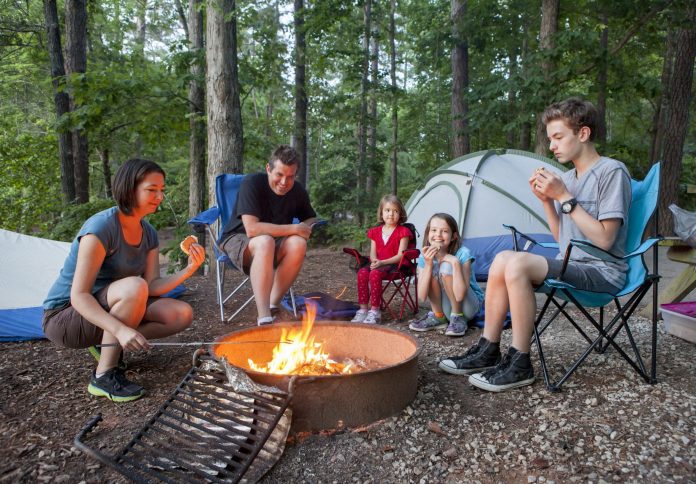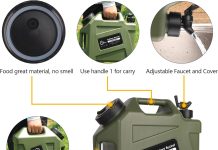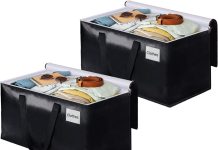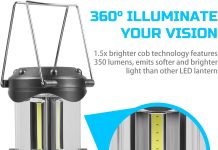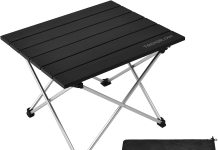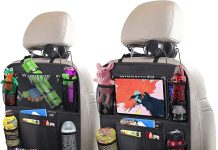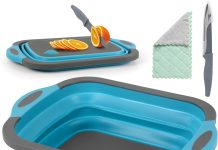Planning a camping trip with little ones in tow can be both exciting and daunting. As parents, we understand how essential it is to have a smooth and enjoyable experience for everyone involved. That’s why we’ve gathered some valuable tips and tricks to help make your camping adventure with babies and toddlers a breeze. From packing essentials to keeping them entertained, we’ve got you covered. So, let’s gear up and embark on this memorable journey together!
Review contents
Choosing the Right Destination
When it comes to camping with babies and toddlers, choosing the right destination is crucial for a successful and enjoyable trip. There are a few factors to consider when deciding on a campsite. The proximity and accessibility of the campsite should be taken into account. It’s best to choose a location that is not too far away from home, especially when traveling with young children. Long car rides can be challenging for babies and toddlers, so finding a campsite that is relatively close by can help minimize stress and fatigue.
Another important aspect to consider is whether the campgrounds are family-friendly. Look for campgrounds that specifically cater to families with young children. These campgrounds often have amenities and activities that are suitable for babies and toddlers, such as playgrounds, kid-friendly hiking trails, and swimming areas. Choosing a family-friendly campground ensures that you have a supportive and safe environment for your little ones.
In addition, it’s crucial to check for amenities and facilities suitable for babies and toddlers. Look for campsites that have clean and accessible restrooms with changing tables. Some campgrounds even provide designated areas for washing and sterilizing bottles and other baby equipment. It’s also important to consider the availability of potable water for washing bottles, preparing formula, and cooking. By choosing a campsite with these amenities, you can make your camping experience much more convenient and comfortable for both you and your child.
Lastly, consider the climate and weather conditions of the destination. Make sure to check the weather forecast before heading out on your camping trip, especially if you’re camping in an area with unpredictable weather patterns. Dress your children appropriately for the weather, and pack extra layers in case the temperature drops. It’s also important to consider the comfort and safety of your little ones in extreme weather conditions. If you’re camping during the hot summer months, choose a location with shaded areas and access to water for swimming or cooling off. On the other hand, if you’re camping in colder weather, make sure to bring warm clothing, blankets, and sleeping bags to keep your babies and toddlers cozy throughout the night.
Planning and Preparation
Planning and preparation are essential when camping with babies and toddlers. By being organized and prepared, you can ensure that you have everything you need for a stress-free and enjoyable camping experience.
First and foremost, make a checklist of essential items for camping with babies and toddlers. This checklist should include items such as diapers, wipes, formula or baby food, bottles, pacifiers, extra clothing, blankets, and any medications or medical supplies your child may need. By having a comprehensive checklist, you can ensure that you don’t forget any crucial items.
When packing for your little ones, it’s important to bring appropriate clothing and gear. Pack plenty of clothing for your children, taking into consideration the weather conditions and the duration of your camping trip. It’s always a good idea to layer their clothing, so that you can easily adjust their clothing to match the temperature fluctuations throughout the day. Don’t forget essentials like hats, sunscreen, and insect repellent to protect your children from the elements.
Choosing suitable camping gear for the family is also an important part of the planning process. Look for a tent that is spacious enough to accommodate your entire family comfortably. Consider a tent with a separate area for the little ones, such as a screened-in porch or an adjoining room. This provides a designated space for your children to play or nap, while still being close to you. Additionally, invest in comfortable sleeping bags and sleeping pads or air mattresses to ensure everyone gets a good night’s sleep.
Practicing setting up the tent and other equipment before the trip can be incredibly helpful, especially if you’re new to camping. This allows you to familiarize yourself with the equipment and troubleshoot any issues before you’re actually on the campsite. It also ensures that you can set up camp efficiently once you arrive, without the added stress of figuring things out for the first time. Plus, involving your little ones in the setup process can make them feel more involved and excited about the camping experience.
Health and Safety Considerations
When camping with babies and toddlers, health and safety should be prioritized. It’s important to take the necessary precautions to ensure that everyone stays healthy and safe throughout the trip.
Ensuring that all necessary vaccinations and medications are up-to-date is crucial before embarking on a camping trip. Consult with your child’s pediatrician to make sure they are protected against any prevalent diseases or illnesses in the camping area. It’s also important to carry essential medications for your child, such as fever reducers, allergy medication, and any prescription medications they may need.
Pack a first aid kit with essential supplies for any minor injuries or illnesses that may occur. This should include items such as band-aids, antiseptic ointment, tweezers for removing splinters or ticks, insect repellent, and any necessary prescription medication. Familiarize yourself with basic first aid techniques and procedures, so that you can confidently address any minor issues that arise.
Protecting your children from insects and other outdoor threats is vital. Use insect repellent specifically designed for babies and toddlers, and dress them in long-sleeved shirts, long pants, and socks to minimize exposure to bugs. Consider bringing a mosquito net or screen tent to create a bug-free zone for your children to play or sleep. It’s also important to be aware of any poisonous plants or dangerous animals that may be present in the camping area. Educate yourself on the local wildlife and take necessary precautions to keep your children safe.
Stay vigilant around bodies of water. Young children are naturally drawn to water, so it’s important to never leave them unattended near lakes, rivers, or other bodies of water. Always watch them closely and, if necessary, use life jackets or floatation devices to keep them safe. It’s also a good idea to teach your children about water safety and basic swimming skills before embarking on a camping trip.
Sleeping Arrangements
Providing comfortable and safe sleeping arrangements for babies and toddlers is essential to ensure a good night’s sleep for everyone in the family. Here are some tips to create a comfortable and secure sleeping environment for your little ones while camping.
Bring a comfortable and safe sleeping solution for babies and toddlers. For infants, a portable bassinet or a travel crib is a great option. These provide a cozy and familiar sleeping space for your baby, similar to their crib at home. Look for a bassinet or travel crib that is lightweight, easy to set up, and has a sturdy frame. For toddlers, consider using a toddler-sized sleeping bag or a portable toddler cot. These provide a cozy and secure sleeping space, while still being easy to transport and set up.
Consider using a portable bassinet or play yard. These versatile pieces of baby gear can serve multiple purposes while camping. During the day, they can be used as a safe play area for your baby or toddler. At night, they can be transformed into a comfortable sleeping space. Look for a model that is lightweight, easy to fold and unfold, and has a comfortable mattress.
Creating a familiar sleeping environment can help babies and toddlers feel more comfortable while camping. Bring along familiar items such as their favorite blanket, stuffed animal, or a noise machine that plays soothing sounds. These familiar items can provide a sense of security and help them sleep better in the new surroundings.
Establishing a bedtime routine while camping is also important. Stick to your child’s usual bedtime routine as much as possible, including activities such as reading a book, singing a lullaby, or having a warm bath. Consistency in the bedtime routine can help signal to your child that it’s time to sleep, even in a different environment. Make sure to allow for some wind-down time before bedtime, so that your child has a chance to relax and prepare for sleep.
Feeding and Mealtime
Feeding and mealtime can be a bit challenging while camping with babies and toddlers, but with proper planning, it can be a smooth and enjoyable experience for the whole family. Here are some tips to make feeding and mealtime easier during your camping trip.
Bring a sufficient supply of baby formula or baby food, depending on your child’s age and dietary needs. It’s always better to bring more than you think you’ll need, as it’s better to have extra than to run out. Opt for pre-measured formula packets or ready-to-feed formula to make preparation easier while camping. If you’re breastfeeding, make sure to pack any necessary nursing supplies, such as breast pumps, storage bags, and bottles.
Pack necessary feeding supplies and utensils, such as bottles, sippy cups, bibs, and spoons. Make sure to bring enough for each meal and have extras on hand in case of spills or accidents. It’s also a good idea to bring a portable bottle warmer or a thermos with hot water to warm up bottles or food. If your child is already eating solid foods, consider bringing a portable high chair or a booster seat to ensure they have a safe and comfortable place to eat.
Consider using disposable or portable high chairs for added convenience. There are many portable high chairs available on the market that are compact, lightweight, and easy to transport. These can be a great option for camping, as they provide a secure and elevated seating option for your child during mealtime. Alternatively, disposable high chair covers can be used to create a clean and safe eating space for your child.
Keep food properly stored to prevent spoilage or attract wildlife. Use coolers or insulated bags to store perishable items, such as baby formula, breast milk, and fresh fruits and vegetables. Make sure to keep these items at a safe temperature to prevent spoilage. Store non-perishable food items in airtight containers to keep them fresh and to prevent wildlife from being attracted to your campsite. It’s also important to clean up any food spills or crumbs immediately to avoid attracting pests.
Entertainment and Activities
Keeping babies and toddlers entertained while camping is important to ensure they have a fun and enjoyable experience. Here are some ideas for age-appropriate activities and entertainment options for your little ones.
Bring along age-appropriate toys and games to keep your children entertained. Choose toys that are easy to pack and don’t require a lot of space. Items such as stuffed animals, small puzzles, and board books are great options. Outdoor toys such as sand toys, balls, and bubbles can also provide hours of entertainment. Make sure to bring a variety of toys to keep your child engaged and entertained throughout the camping trip.
Plan outdoor activities that are suitable for the little ones. Look for easy hiking trails that are stroller-friendly, and bring a baby carrier or a backpack carrier for longer hikes. Many campgrounds have playgrounds or play areas specifically designed for young children, so take advantage of these amenities. Consider bringing along a kid-sized fishing rod or a bug-catching kit to introduce your child to new outdoor activities. Nature walks and scavenger hunts are also great ways to engage your child’s curiosity and explore the natural surroundings.
Take advantage of nature’s playground by engaging in activities such as hiking and swimming. Exploring hiking trails as a family can be a great way to connect with nature and discover new sights and sounds. Swimming in nearby lakes, rivers, or even in a campground pool can also be a fun and refreshing activity for the whole family. Just make sure to keep a close eye on your children at all times and adhere to any safety guidelines provided by the campground.
Engage in storytelling and nature observation. Sitting around the campfire and telling stories is a classic camping tradition that can captivate your child’s imagination. Share stories about nature, animals, or adventure to spark their curiosity and interest. Encourage your child to observe the natural surroundings and point out different plants, animals, and insects. This can be a great opportunity for them to learn about the environment and develop a sense of wonder and appreciation for nature.
Diapering and Hygiene
Proper diapering and hygiene practices are important to keep your little ones clean and comfortable while camping. Here are some tips to help you navigate diapering and hygiene while in the great outdoors.
Pack an adequate supply of diapers, wipes, and changing pads. It’s always better to pack more than you think you’ll need, as it’s better to have extra than to run out. Place individually wrapped diapers and wipes in resealable plastic bags to keep them organized and protected from dirt or moisture. Make sure to pack enough changing pads to create a clean and comfortable surface for diaper changes.
Consider using portable or disposable diapering options to make diaper changes easier while camping. Many camping stores offer disposable diaper bags that are designed to be environmentally friendly and easy to transport. These bags are perfect for disposing of dirty diapers and wipes when trash bins are not readily available. Some parents also opt for cloth diapers while camping, as they can be washed and reused, reducing waste.
Follow proper waste disposal guidelines. Dispose of dirty diapers and wipes properly by wrapping them up securely in plastic bags and placing them in designated trash bins or garbage bags. It’s important to follow any specific waste disposal guidelines provided by the campground to minimize the impact on the environment.
Maintain cleanliness and hygiene throughout the camping trip. Encourage regular handwashing for both yourself and your children, especially before meals and after using the restroom. Use hand sanitizer when handwashing facilities are not available. Keep your camping area clean by picking up any trash or food scraps immediately to prevent pests from being attracted to your campsite.
Dealing with Common Challenges
Camping with babies and toddlers can present its own set of challenges. However, with a little patience and preparation, you can overcome these challenges and have a smooth camping trip. Here are some common challenges that you may encounter and tips for managing them.
Adjusting to the camping environment and unfamiliar surroundings can be overwhelming for babies and toddlers. To help them feel more comfortable, try to maintain a routine as much as possible. Stick to regular meal and nap times, and provide familiar items such as their favorite blanket or stuffed animal. Engage your child in exploring the new surroundings, and encourage them to take part in setting up camp. By involving them in the process, you can help them feel more at ease in the new environment.
Handling tantrums and sleep disruptions is not uncommon while camping. Changes in routine, unfamiliar surroundings, and the excitement of the camping experience can sometimes lead to meltdowns or difficulty settling down for sleep. To manage tantrums, try to identify the root cause and provide a calming and distraction technique, such as reading a book or engaging in a soothing activity. Stick to the regular bedtime routine and provide a comfortable and familiar sleeping environment to help your child settle down for sleep.
Dealing with insect bites, allergies, or minor injuries is a possibility while camping. Pack insect repellent specifically designed for babies and toddlers to minimize the risk of bug bites. Keep a close eye on your child to prevent them from touching poisonous plants or coming into contact with harmful insects. If your child does develop an insect bite or minor injury, clean the affected area with mild soap and warm water, and apply a suitable ointment or cream. If your child has any allergies, make sure to pack any necessary medications or antihistamines and consult with your pediatrician before the trip.
Managing limited bathroom facilities can be challenging, especially when camping in remote or primitive areas. Make sure to familiarize yourself with the bathroom facilities available at the campground, including any restrictions or guidelines in place. If there are no designated bathrooms, teach your child about proper outdoor bathroom etiquette and ensure that they know to use designated areas away from the campsite. Encourage regular potty breaks for your child, and consider using portable potties or training seats for added convenience.
Tips for a Smooth Campsite Setup
Setting up your campsite efficiently can make a big difference in the overall camping experience. Here are some tips to ensure a smooth campsite setup.
Choose a spacious and level campsite. Look for a campsite that provides enough space for your tent, gear, and a designated play area for your child. Ensure that the ground is level, as this will make setting up the tent and other equipment much easier.
Set up a designated play area for the children. Use ropes or stakes to create a safe and secure play zone for your child. This will allow them to play freely while still being within sight and reach. Make sure to remove any hazardous objects or potential dangers from the play area.
Organize gear and supplies for easy access. Pack your gear in a way that allows for easy access and organization. Use labeled storage bins or clear plastic bags to keep items sorted and easily identifiable. This will save you time and frustration when you need to find something quickly.
Consider using portable camping furniture for added convenience. Portable camping chairs and tables can provide a comfortable and convenient seating and dining area for the whole family. Look for lightweight and collapsible options that are easy to transport and set up. Having a designated dining area can make mealtime more enjoyable and less chaotic.
Final Thoughts and Conclusion
Camping with babies and toddlers can be a rewarding and memorable experience for the whole family. By following these tips and guidelines, you can ensure a smooth and enjoyable trip. Remember to choose a suitable destination that caters to the needs of your young children, and prepare and pack all the necessary items to ensure their comfort and safety. Be flexible and adaptable during the trip, and prioritize the needs of your little ones. By creating lasting memories and cherishing the time spent in nature with your children, you can foster a love for the outdoors and create a strong family bond.

